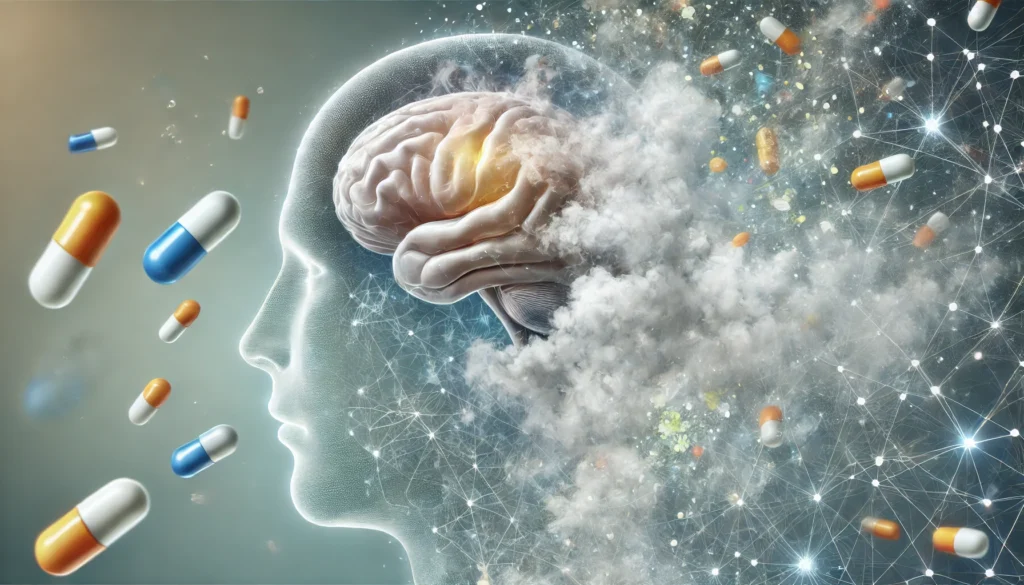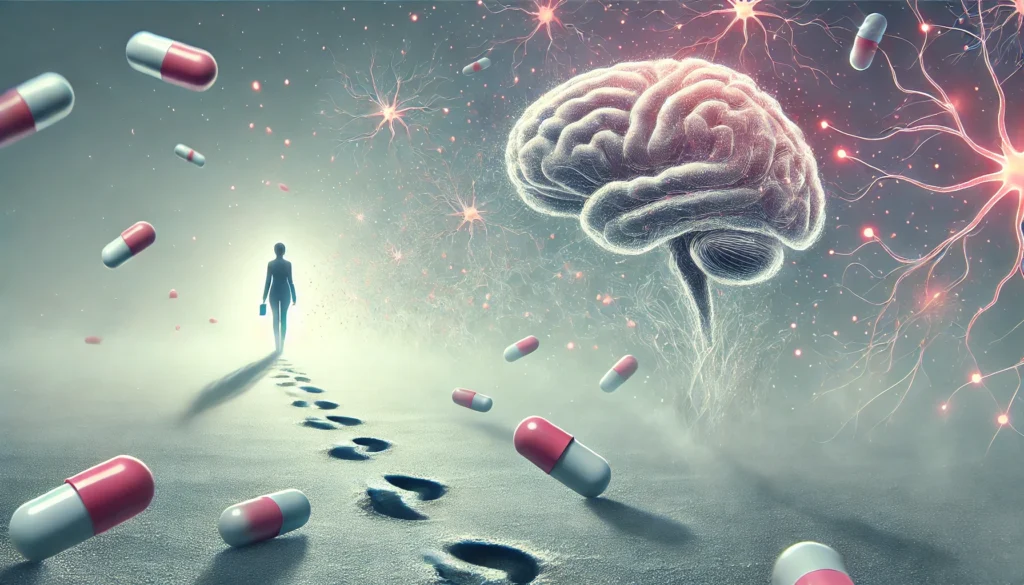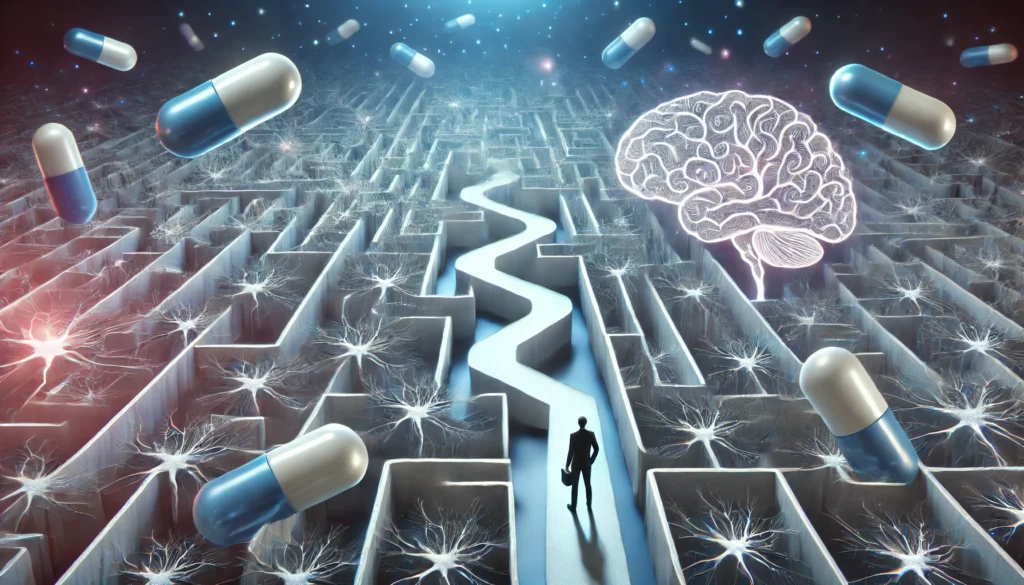Understanding the potential link between Zyrtec and memory loss can be complex, given the wide-ranging effects of medications on the human body. As we delve into this topic, it’s essential to consider the broader context of how antihistamines, like Zyrtec, might interact with cognitive functions. We’ll explore existing research, discuss the implications for individuals, and provide practical advice for those concerned about memory health.
You may also like: Understanding the Science Behind Lost Memory
The Role of Antihistamines in Allergy Relief
Antihistamines are commonly prescribed or purchased over-the-counter to manage allergy symptoms. They work by blocking histamines, the chemicals your body releases during an allergic reaction. While effective in reducing symptoms such as sneezing, itching, and runny nose, these medications can sometimes have unexpected cognitive side effects.
Mechanism of Action of Antihistamines
Antihistamines function by inhibiting the binding of histamine to its receptors, which prevents the cascade of allergic reactions. This blocking action can relieve allergy symptoms quickly, providing much-needed relief to those suffering. However, the same mechanism can inadvertently affect other neurotransmitter systems, leading to potential side effects.
First-Generation vs. Second-Generation Antihistamines
First-generation antihistamines, like diphenhydramine, are known for their sedative effects due to their ability to cross the blood-brain barrier easily. They can significantly impair cognitive functions, causing drowsiness and even confusion. Second-generation antihistamines, such as Zyrtec, are designed to have fewer central nervous system effects, but concerns about cognitive impairments remain.
Cognitive Side Effects: A Closer Look
Antihistamines, especially first-generation types, are known for causing drowsiness and sedation. More modern antihistamines, like Zyrtec (cetirizine), are less sedative but have been associated with other cognitive impairments, such as memory loss and confusion, particularly in sensitive populations. These side effects can vary widely between individuals, influenced by factors like age, dosage, and individual sensitivity.
Exploring Zyrtec and Memory Loss
Does Zyrtec Cause Memory Loss?
The question of whether Zyrtec directly causes memory loss is complex. While there are anecdotal reports and some studies suggesting a link, comprehensive clinical trials specifically targeting this issue are limited. However, it is known that Zyrtec can pass the blood-brain barrier, potentially influencing brain function. The degree of impact on memory can differ, and more research is needed to establish a definitive connection.
Anecdotal Evidence and Clinical Observations
Many individuals have reported experiencing memory issues while taking Zyrtec, contributing to growing concerns. Healthcare providers have noted these reports, prompting further investigation. Despite the lack of large-scale studies, the accumulation of anecdotal evidence cannot be entirely dismissed and warrants careful consideration.
Understanding the Blood-Brain Barrier
The ability of Zyrtec to cross the blood-brain barrier highlights its potential to affect central nervous system functions. This characteristic is a double-edged sword, allowing the drug to treat central symptoms of allergies but also posing risks to cognitive health. Understanding this dynamic is crucial for both healthcare providers and patients.
Antihistamines and Acetylcholine
One of the primary concerns with antihistamines and cognitive function is their effect on acetylcholine, a neurotransmitter crucial for learning and memory. By blocking acetylcholine receptors, antihistamines might contribute to cognitive decline, especially in older adults. This interference with neurotransmitter balance is a critical area of study for understanding the broader impacts on brain health.

Research on Acetylcholine Blockage
Studies have shown that acetylcholine plays a vital role in maintaining memory and learning processes. Antihistamines that inhibit acetylcholine can disrupt these processes, leading to cognitive decline. Continued research is necessary to fully understand this interaction and its long-term implications.
Populations at Greater Risk
Older adults are particularly susceptible to the cognitive side effects of antihistamines due to natural declines in acetylcholine levels. This demographic may experience more pronounced memory issues, highlighting the need for careful medication management. Tailoring antihistamine use in these populations can mitigate risks and preserve cognitive health.
Broader Implications for Brain Health
Medications and Cognitive Decline
Zyrtec is not the only medication under scrutiny for its potential impact on memory. Other drugs, including certain blood pressure medications and antidepressants, have also been linked to cognitive issues. Understanding these interactions is vital for maintaining brain health, especially in older populations. Comprehensive medication reviews can help identify potential risks and guide safer treatment choices.
Exploring Other Medications Affecting Memory
Several medications, beyond antihistamines, have been associated with cognitive decline. These include sedatives, muscle relaxants, and some anti-anxiety medications. Each has its own mechanism that can impact brain function, emphasizing the importance of holistic medication management in healthcare practices.
Strategies for Medication Management
To minimize cognitive side effects, healthcare providers often recommend strategies such as adjusting dosages or exploring alternative medications. Regular reviews of medication regimens can help identify problematic drugs. Patients are encouraged to actively participate in these reviews to optimize their treatment plans.
Age and Sensitivity to Medication
Age can significantly affect how medications impact cognitive function. As we age, our brains become more susceptible to changes induced by pharmaceuticals, making it crucial to monitor and manage medication use carefully. This sensitivity necessitates a personalized approach to prescribing medications, considering age-related changes in metabolism and brain chemistry.
The Aging Brain and Medication Metabolism
The aging process affects the body’s ability to metabolize medications, leading to increased sensitivity. This can amplify side effects, including those affecting cognition. Understanding these changes is vital for healthcare providers to tailor treatments that minimize risks and enhance therapeutic outcomes.
Personalized Approaches for Older Adults
For older adults, personalized medication plans that consider individual health profiles can significantly reduce cognitive risks. Such plans involve careful selection of drugs, regular monitoring, and adjustments as needed. Empowering patients with knowledge and involving them in decision-making is a key component of successful medication management.
Practical Advice for Concerned Individuals
Discussing Medication Concerns with Healthcare Providers
If you’re worried about the cognitive effects of Zyrtec or other medications, it’s essential to consult with a healthcare provider. They can help assess your risk and explore alternative treatments that may have fewer cognitive side effects. Open communication about all medications being taken is crucial for an accurate assessment.
Preparing for Your Healthcare Appointment
Before discussing medication concerns with your healthcare provider, prepare a list of all medications and supplements you are taking. Note any cognitive changes or symptoms you have experienced. This preparation will facilitate a more comprehensive discussion and aid in identifying potential issues.
Exploring Alternative Therapies
Healthcare providers can offer alternative therapies that may pose fewer cognitive risks. These alternatives could include non-pharmacological treatments or newer medications with different action mechanisms. Exploring these options can provide relief from allergy symptoms while minimizing cognitive side effects.

Lifestyle Modifications to Support Memory Health
In addition to consulting healthcare professionals, consider lifestyle changes that can bolster cognitive function. Regular physical activity, a balanced diet rich in omega-3 fatty acids, and mental exercises like puzzles or learning new skills can help maintain memory health. These modifications can enhance overall brain function and complement medical treatments.
The Role of Nutrition in Cognitive Health
A diet rich in nutrients known to support brain health can play a significant role in maintaining memory. Foods high in antioxidants, vitamins, and omega-3 fatty acids can protect against cognitive decline. Incorporating these foods into your diet can provide a natural boost to cognitive functions.
The Importance of Mental Stimulation
Engaging in activities that challenge the brain, such as puzzles, reading, or learning a new language, can help maintain cognitive vitality. These activities encourage the formation of new neural connections and can offset some medication-related cognitive risks. Regular mental exercises are a valuable component of a comprehensive approach to brain health.
Staying Informed on Medication Updates
Keeping abreast of new research on medications and their side effects is crucial. As our understanding of drug interactions with brain function evolves, being informed can empower you to make better health decisions. Subscribing to reputable health newsletters or participating in support groups can provide ongoing education and support.
Utilizing Reliable Sources for Information
To stay informed, rely on reputable medical journals, healthcare providers, and official health organizations for updates. Avoid sources that lack scientific credibility, as misinformation can lead to poor health decisions. A well-informed approach ensures that you are equipped to navigate the complexities of medication use and its impact on cognitive health.
Participating in Health Communities
Joining health-focused communities, both online and offline, can provide support and information sharing. These communities can offer insights into managing medications and their side effects from individuals with similar experiences. Being part of such groups can also provide emotional support and practical advice.
The Future of Antihistamines and Cognitive Health
Emerging Research and Trends
As research into the cognitive effects of antihistamines and other medications continues, new findings may lead to the development of drugs with fewer side effects. Innovations in pharmaceutical research could soon provide safer options for individuals concerned about memory loss. Keeping an eye on these developments can help you anticipate and adapt to new treatment options.
Advancements in Drug Development
The pharmaceutical industry is continuously working on developing medications with improved safety profiles. Advances in understanding drug interactions at the molecular level can lead to the creation of antihistamines that effectively relieve allergy symptoms without compromising cognitive function. These advancements hold promise for safer allergy management.
The Role of Technology in Research
Technological advancements, such as machine learning and computational modeling, are transforming drug research. These tools allow for more precise predictions of drug effects on the brain, accelerating the development of safer medications. Embracing technology in research can lead to breakthroughs in understanding and mitigating cognitive side effects.
Personalized Medicine
The future of medicine is moving toward personalized approaches, considering individual genetic and metabolic profiles. This shift could allow for more precise prescriptions, minimizing adverse effects like memory loss. Tailored treatments based on genetic insights can revolutionize how we manage medication-related cognitive issues.
Genetic Insights and Medication Response
Genetic testing can provide valuable insights into an individual’s response to medications, including antihistamines. This information can guide personalized treatment plans that optimize efficacy while minimizing risks. As genetic testing becomes more accessible, it will play a critical role in personalized medicine.
The Impact of Personalized Medicine on Healthcare
Personalized medicine represents a paradigm shift in healthcare, focusing on individual-specific treatment strategies. This approach can enhance patient outcomes by reducing trial-and-error prescribing. As personalized medicine becomes more mainstream, it will transform the way we approach medication management, including the use of antihistamines.

Conclusion
While the link between Zyrtec and memory loss is still under investigation, understanding the potential cognitive impacts of medications is crucial for maintaining brain health. By staying informed, discussing concerns with healthcare providers, and adopting supportive lifestyle habits, individuals can better navigate the complexities of medication use and memory health. As research progresses, we hope for clearer guidelines and safer options for those managing allergies and other conditions with antihistamines. Taking a proactive approach can empower individuals to make informed decisions that prioritize both allergy relief and cognitive well-being.
Further Reading:
Antihistamines and Dementia: Drawing Proper Conclusions From What We Hear and Read
Medications That Can Mimic Dementia
Drug can temporarily boost long-term memory of objects
Important Note: The information contained in this article is for general informational purposes only, and should not be construed as health or medical advice, nor is it intended to diagnose, prevent, treat, or cure any disease or health condition. Before embarking on any diet, fitness regimen, or program of nutritional supplementation, it is advisable to consult your healthcare professional in order to determine its safety and probable efficacy in terms of your individual state of health.
Regarding Nutritional Supplements Or Other Non-Prescription Health Products: If any nutritional supplements or other non-prescription health products are mentioned in the foregoing article, any claims or statements made about them have not been evaluated by the U.S. Food and Drug Administration, and such nutritional supplements or other health products are not intended to diagnose, treat, cure, or prevent any disease.


